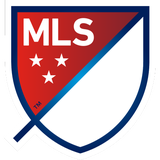
Potential investors unveil stadium plan for MLS expansion to San Diego
SAN DIEGO (AP) — With the NFL's Chargers leaving for Los Angeles, a group of private investors unveiled plans Monday to bring an MLS team to San Diego and build a stadium that can be shared with San Diego State.
In addition to the joint-use venue which could seat up to 30,000, the 166-acre Qualcomm Stadium site which has housed the Chargers would also be used for a sports and entertainment district, according to the FS Investors group's plans. The plans also set aside acreage for a larger stadium, in case the NFL decides to return to San Diego.
"There are a lot of people that were disappointed with that (the Chargers' move) and understandably so," said Nick Stone, a partner in the investors group, which would develop the property and own the MLS franchise. "But we think this is a really, really interesting time to look at the opportunity to bring soccer to San Diego. It's a very logical market for that.

"We can bring what is the world's most popular sport, and the fastest growing sport in the U.S.," Stone said. "One door closed but a really great door opened."
The Chargers announced on Jan. 12 that they would play in the Los Angeles area next season after 56 seasons in San Diego.
Stone's group, which includes Padres lead investor Peter Seidler and former Qualcomm president Steve Altman, has the exclusive negotiating rights with the MLS. The league it is expected to designate expansion cities this fall.
The investor group said it wouldn't require taxpayer money for its plan, which includes buying the land now occupied by Qualcomm.

"This is an exciting concept that could welcome major league soccer to San Diego without public subsidy, provide a home for Aztecs football and create a long-awaited river park," San Diego Mayor Kevin Faulconer said in a statement. "I look forward to seeing the final plan."
After five years, FS Investors said it would donate its half ownership of the stadium to San Diego State. San Diego State's football team now plays at Qualcomm Stadium, which is also home to college football's Holiday and Poinsettia bowls.
